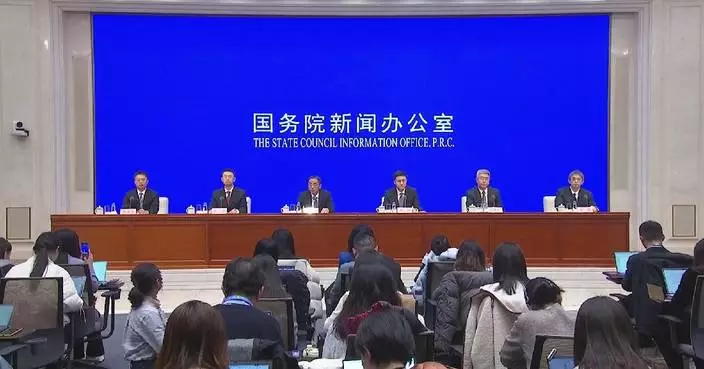China's favorable policies and opening-up measures have further improved its business environment and boosted the confidence of foreign companies in the country, according to Bayer Healthcare's Vice President Thomas Jacxsens.
Talking to China Global Television Network (CGTN) in Beijing, Jacxsens hailed China's commitment to deepening reform and further opening up in the healthcare sector.
In September 2024, China issued a notice of the pilot program for expanding opening up in the healthcare sector, with Beijing, Shanghai and Tianjin designated among the nine provinces and municipalities to launch fully foreign-funded hospital trials.
"All of these policies are definitely interesting and catching the interests and curiosity of pharmaceutical companies, especially the policies around allowing foreign-owned entities to get involved in innovations around cell and gene therapies, that is very promising for us because Bayer is actually one of the global innovators when it comes to those therapies. We have two wholly owned subsidiaries, AskBio and BlueRock, and those companies are working on some cutting-edge therapies, for example, for Parkinson's disease. And that will be really interesting to see how that can at some point line up with what's happening in China," said Jacxsens.
Beijing's strengths in innovation and advanced manufacturing have made it a great city for foreign investment, according to Jacxsens.
"What is keeping me busy right now is a curiosity around what is happening in the area of advanced automation and advanced robotics, and we believe that we are in the middle of the 'candy store', as I call it, there are so many innovative companies working on this area here in Beijing and in China, so we want to tap into that, we want to understand the trends that are happening there. So that we can see the added value for the pharmaceutical industry and then hopefully also bring that into our whole global network," he said.
The businessman has played an active role in fostering communication between Chinese and German companies, including participation in events like the China International Import Expo and sharing insights on China's healthcare policies with Bayer's headquarters in Germany. As the Chinese market continues to open up and the business environment continues to improve, Jacxsens said his company intends to stay in China for the long term.
"We have been here 140 years and we intend to stay here a lot longer, so we keep our eyes open. We are part of the communities here and every day we try to be a better version of ourselves," Jacxsens said.

China's policies enhance business climate, bolster foreign confidence: Bayer VP
A former television host from Taiwan, Zhai Xuan, has made a pivotal decision to leave mainstream broadcasting in order to create content that provides a better understanding of the Chinese mainland and cross-strait relations.
Zhai, a seasoned television host with over a decade of experience in Taiwan's media landscape, recently addressed an audience at an event in Beijing, where she revealed her complete transition into independent online media.
In her remarks, she articulated her aspiration to bridge what she perceives as a significant information gap between audiences on both sides of the Strait, highlighting her commitment to fostering a deeper understanding and connection through her new endeavors.
"I was really surprised by all the fake news. There were stories saying people on the mainland can't afford tea eggs or that they live in mud houses and in Taiwan, this was the main information many people received," said Zhai.
Zhai said she initially began producing online videos to challenge such perceptions while continuing her work as a television host.
In April 2025, she travelled to the mainland with her father to fulfill her late grandfather's wish to return to his hometown. The trip, which reunited family members separated since 1949, was recorded in a video series titled "Journey to Find Our Roots", drawing attention from viewers in both Taiwan and the mainland.
"Many people in Taiwan told me that after watching, they wanted to apply for a mainland travel permit immediately and go looking for their relatives. Some had long forgotten these things, but after seeing my story, they began thinking about their hometowns and family members they had never met and decided to search for their roots," Zhai shared her story at the event.
By mid-2025, Zhai said she began to feel increasing pressure amid rising political tensions and a tightening atmosphere around cross-Strait exchanges in Taiwan.
After more than 12 years in the industry, Zhai resigned from her position, believing it was the right thing to do.
"At that moment, I felt this was a major issue,not just for me, but for Chinese people on both sides of the Strait. If I backed down then, I wouldn’t be standing on the right side," said Zhai.
Since leaving television, Zhai has broadened her online programming to encompass a range of daily-life topics, including practical guidance on applying for a mainland travel permit and using commonly employed mobile applications, in addition to content that delves into historical memory and cultural connections across the Strait.
As the debate over cross-Strait relations continues in Taiwan, Zhai said she remains committed to her current path.

Former Taiwan TV host bridges cross-Strait divide via online media










